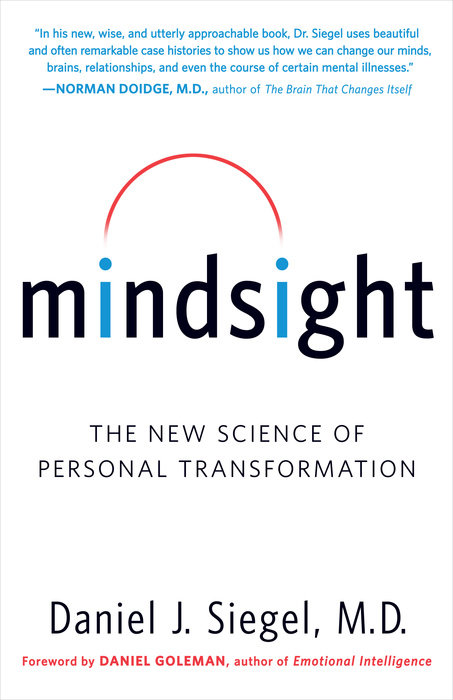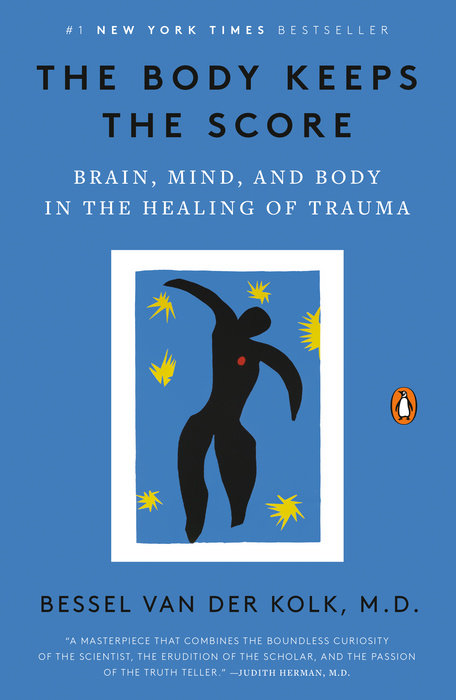People Are Quitting Their Jobs in Record Numbers—Here’s Why It Might Not Make You Any Happier
By Jade Scipioni — 2021
Will quitting your job really make you happier? Experts say maybe not as much as you think, especially in the long run and if don’t plan properly.
YOU MIGHT ALSO LIKE
CLEAR ALL
BY TOPIC
BY TYPE
FILTER

TOPIC
- Personal Development (86)
- Goal Setting (78)
- Talk Therapy (77)
- Well-Being (57)
- Self-Mastery (56)
- Work Challenges (56)
- Self-Development (54)
- Self-Discovery (45)
- Habit Formation (44)
- Problem Solving (42)
- Anxiety (41)
- Neuroscience (39)
- Entrepreneurship (36)
- Depression (34)
- Inspiration (34)
- Self-Reflection Practices (34)
- Honoring Emotion (33)
- Motivation (31)
- Resilience (31)
- Focus (30)
- Productivity (30)
- Athlete Well-Being (29)
- Search for Purpose (28)
- Stress Management (28)
- Self-Care (27)
- Fear (26)
- Habits of Mind (26)
- BIPOC Well-Being (24)
- Finding Meaning (24)
- Peak Performance (23)
- Work-Life Balance (23)
- Communication Skills (22)
- Emotional Intelligence (EQ) (22)
- Joy (22)
- Collaboration (21)
- Criticism and Rejection (21)
- Gratitude (21)
- Human Potential (21)
- Mindfulness (21)
- Self-Limiting Beliefs (21)
- Courage (20)
- Mind-Body Connection (20)
- Negative Self-Talk (20)
- Authenticity (19)
- Self-Actualization (19)
- Self-Expression (19)
- Stress (19)
- Confidence (18)
- Self-Discipline (18)
- Burnout (17)
- Leadership (17)
- Self-Healing (17)
- Awareness (16)
- Cancer (16)
- Growth Mindset (16)
- Meditation (16)
- Self-Control (16)
- Transformation (16)
- Trauma Healing (16)
- Black Well-Being (15)
- Parenting (15)
- Positive Thinking (15)
- Relationship Challenges (15)
- Relationship with Money (15)
- Relationship with Time (15)
- Self-Worth (15)
- Time Management (15)
- Buddhism (14)
- Decision Making (14)
- Empowerment (14)
- Inner Peace (14)
- Inner Strengths (14)
- Life Challenges (14)
- Physical Health (14)
- Positive Psychology (14)
- Presence (14)
- Psychology (14)
- Self-Acceptance (14)
- Self-Esteem (14)
- Work Relationships (14)
- Brain Health (13)
- Self-Pressure (13)
- Anger (12)
- Belonging (12)
- Fellowship and Community (12)
- Manifestation (12)
- Mindfulness Practices (12)
- Optimism (12)
- Performance Anxiety (12)
- Setting Limits and Boundaries (12)
- Vulnerability (12)
- Willpower (12)
- Child’s Emotional Growth (11)
- Compassion (11)
- Inner Life (11)
- Intention (11)
- Journaling (11)
- Kindness (11)
- Neuroplasticity (11)
- Quitting Your Job (11)
- Women’s Well-Being (11)
- Activism/Service (10)
- Failure (10)
- Positive Self-Talk (10)
- Self-Love (10)
- Shame (10)
- Slumps (10)
- Visualization (10)
- Addiction (9)
- Exercise (9)
- Grief (9)
- Letting Go (9)
- Mental Health Challenges (9)
- Neuropsychology (9)
- PTSD (9)
- Self-Compassion (9)
- Self-Reckoning (9)
- Self-Reliance (9)
- Breathwork (8)
- Connection (8)
- Financial Instability (8)
- Identity (8)
- Memoir (8)
- Offering Support to Others (8)
- Self-Realization (8)
- Suicide (8)
- Work Ethic (8)
- Addiction Recovery (7)
- Children’s Well-Being (7)
- Competition (7)
- Digital Life (7)
- Healthy Eating (7)
- Passion (7)
- Perception (7)
- Play (7)
- Speaking Your Truth (7)
- Spiritual Growth (7)
- Spiritual Life (7)
- Unfulfilled Career (7)
- ADD/ADHD (6)
- Anger Management (6)
- Asking for Help (6)
- Building Culture (6)
- Chronic Anxiety (6)
- Connection with Nature (6)
- Cross-Cultural Dynamics (6)
- Diet and Nutrition (6)
- Forgiveness (6)
- Learning Styles (6)
- Neurodiversity (6)
- Performance Pressure (6)
- Racial Identity (6)
- Self-Employment (6)
- Suffering (6)
- Values (6)
- Young Adult Well-Being (6)
- Acceptance (5)
- Aging (5)
- Awe (5)
- Conflict Resolution (5)
- Curiosity (5)
- Eating Disorders (5)
- Empathy (5)
- Family Dynamics (5)
- Global Challenges (5)
- Guilt (5)
- Integrative Medicine (5)
- Intuition (5)
- Mindfulness Meditation (5)
- Rest (5)
- Romantic Relationships (5)
- Sleep (5)
- Social Responsibility (5)
- Soul Mission (5)
- Spiritual Healing (5)
- Tibetan Buddhism (5)
- Trauma (5)
- Trust (5)
- Veteran Well-Being (5)
- Adaptability (4)
- Cognitive Behavioral Therapy (4)
- Community Healing (4)
- Disconnection (4)
- Divorce and Breakup (4)
- Endurance (4)
- Female Empowerment (4)
- Following Bliss (4)
- Integrity (4)
- Latinx Well-Being (4)
- LGBTQIA Well-Being (4)
- Mentoring (4)
- Race and Gender (4)
- Racism (4)
- Ritual (4)
- Stoicism (4)
- Storytelling (4)
- AAPI Well-Being (3)
- Affirmations (3)
- Art Therapy (3)
- Autism (3)
- Body Image (3)
- Child’s ADD/ADHD (3)
- Chronic Pain (3)
- Clinical Depression (3)
- Dysfunctional Childhood (3)
- Embodiment (3)
- Energy Healing (3)
- Forest Bathing (3)
- Generosity (3)
- Genetics (3)
- Guided Meditation (3)
- Healing Approaches (3)
- Holism (3)
- Imposter Syndrome (3)
- Indigenous Well-Being (3)
- Jealousy/Envy (3)
- Loneliness (3)
- Love (3)
- Military to Civilian Re-entry (3)
- Patience (3)
- Racial Healing (3)
- Sexuality (3)
- Situational Depression (3)
- Social Anxiety (3)
- Social Media Addiction (3)
- Social Psychology (3)
- Somatic Practices (3)
- Spiritual Awakening (3)
- Spiritual Development (3)
- Spiritual Practices (3)
- Toxic Relationships (3)
- Zen Buddhism (3)
- A Course in Miracles (2)
- Abandonment (2)
- Alcohol Addiction (2)
- Attachment Theory (2)
- Autoimmune Disease (2)
- Biofeedback (2)
- Body Positivity (2)
- Building Character (2)
- Child’s Anxiety (2)
- Child’s Trauma (2)
- Chronic Health Conditions (2)
- Death or Loss of a Loved One (2)
- Disabled Well-Being (2)
- Doubt (2)
- Ego Transcendence (2)
- Emotional Labor (2)
- Gender Challenges (2)
- Highly Sensitive People (2)
- Hope (2)
- Hypnosis (2)
- Inner Child (2)
- Interdependence (2)
- Intergenerational Trauma (2)
- Intimacy (2)
- Kids and Sports (2)
- Longevity (2)
- Lovingkindness (2)
- Marriage (2)
- Masculine/Feminine Dynamics (2)
- Memory (2)
- Narcissism (2)
- OCD (2)
- Oneness (2)
- Othering (2)
- Panic Attacks (2)
- Philosophical Approaches (2)
- Post-Traumatic Growth (2)
- Racial Justice (2)
- Retirement (2)
- Shadow (2)
- Social Justice (2)
- Spiritual Quest (2)
- Sustainability (2)
- Yoga (2)
- Youth Activism (2)
- Zen Meditation (2)
- Academic Struggles (1)
- Accepting Love (1)
- Access to Education (1)
- Acupressure (1)
- Bullying (1)
- Cannabis/CBD (1)
- Caregiver Well-Being (1)
- Child’s Autism (1)
- Child’s Challenging Behavior (1)
- Christianity (1)
- Climate Change (1)
- Codependency (1)
- Cognition (1)
- Cognitive Psychology (1)
- Collective Trauma (1)
- Compassion Meditation (1)
- Conscience (1)
- Conscious Evolution (1)
- Consciousness (1)
- Dark Night of the Soul (1)
- Deciding to Have Children (1)
- Despair (1)
- Domestic Abuse (1)
- Drug Addiction (1)
- Economic Justice (1)
- Ego (1)
- Energy Balancing (1)
- Enlightenment (1)
- Environmental Justice (1)
- Epigenetics (1)
- Facing Own Death (1)
- Faith (1)
- Faith and Identity (1)
- Fate (1)
- Fatigue (1)
- Feminism (1)
- Freedom (1)
- Gender Discrimination (1)
- Goddess (1)
- Grace (1)
- Heartmath (1)
- Hero’s Journey (1)
- Higher Calling (1)
- Humility (1)
- Islam (1)
- Jungian Analysis (1)
- Karma (1)
- LGBTQIA Children (1)
- Life Force Energy (1)
- Living as an Empath (1)
- Lovingkindness Meditation (1)
- Men’s Well-Being (1)
- Midlife Crisis (1)
- Motherhood (1)
- Non-Duality (1)
- Nutritional Medicine (1)
- Obsessions/Compulsions (1)
- Personality Disorders (1)
- Personality Typing (1)
- Pleasing Parents (1)
- Prayer (1)
- Pregnancy and Childbirth (1)
- Psychedelic Journey (1)
- Psychoanalysis (1)
- Psychology and Spirituality (1)
- Quantum Physics (1)
- Racial Discrimination (1)
- Regret (1)
- Sex (1)
- Social Presence (1)
- Somatic Experiencing (1)
- Spiritual Fasting (1)
- Spirituality and Health (1)
- Subconscious (1)
- Sutras (1)
- The Feldenkrais Method (1)
- Trauma-Informed Therapy (1)
- Traumatic Grief (1)
- Unconscious Bias (1)
- Vitamin Supplementation (1)
- Weight Concerns (1)
- Women’s Rights (1)
FILTER

TEACHER
- Neil Pasricha (7)
- Ed Diener (6)
- Jack Canfield (6)
- Mihály Csíkszentmihályi (6)
- The Dalai Lama (6)
- Julia Cameron (5)
- Lisa Feldman Barrett (5)
- Rick Hanson (5)
- Brené Brown (4)
- C. S. Lewis (4)
- Danielle LaPorte (4)
- Gabor Maté (4)
- Brendon Burchard (3)
- Dan Buettner (3)
- Daniel Amen (3)
- Daniel Goleman (3)
- don Miguel Ruiz (3)
- Edward Hallowell (3)
- Marci Shimoff (3)
- Mark Victor Hansen (3)
- Natalie Goldberg (3)
- Amishi Jha (2)
- Andrew Solomon (2)
- Andrew Weil (2)
- Arianna Huffington (2)
- Bruce Lipton (2)
- Daniel Gilbert (2)
- Daniel J. Siegel (2)
- Debbie Ford (2)
- Elaine Aron (2)
- Elizabeth Gilbert (2)
- Gabrielle Bernstein (2)
- Gary Zukav (2)
- Gretchen Rubin (2)
- James Doty (2)
- John C. Parkin (2)
- John Sarno (2)
- Karla McLaren (2)
- Kelly McGonigal (2)
- Lodro Rinzler (2)
- Lorin Roche (2)
- Marcus Aurelius (2)
- Martin Seligman (2)
- Matthieu Ricard (2)
- Mel Robbins (2)
- Michael Bernard Beckwith (2)
- Noah Elkrief (2)
- Ralph De La Rosa (2)
- Sharon Salzberg (2)
- Simon Sinek (2)
- Tal Ben-Shahar (2)
- Terri Cole (2)
- Yongey Mingyur Rinpoche (2)
- Adam Grant (1)
- Alain de Botton (1)
- Alan Watts (1)
- Alison Green (1)
- Angela Duckworth (1)
- Anne Lamott (1)
- Ashley Neese (1)
- bell hooks (1)
- Bertrand Russell (1)
- Bessel van der Kolk (1)
- Biet Simkin (1)
- Blaise Aguirre (1)
- Byron Katie (1)
- Cal Newport (1)
- Carol Dweck (1)
- Chalene Johnson (1)
- Chip Conley (1)
- Connie Zweig (1)
- David Whyte (1)
- Dilip Jeste (1)
- don Jose Ruiz (1)
- Eckhart Tolle (1)
- Elizabeth Lesser (1)
- Ellen Langer (1)
- Emiliana Simon-Thomas (1)
- Epictetus (1)
- Forrest Hanson (1)
- Geneen Roth (1)
- Glennon Doyle (1)
- Gordon Neufeld (1)
- Guru Jagat (1)
- Harriet Lerner (1)
- Hyla Cass (1)
- Iskra Lawrence (1)
- Jack Kornfield (1)
- Jacqueline Carter (1)
- James Baraz (1)
- James Hollis (1)
- Jan Willis (1)
- Jana Long (1)
- Jay Shetty (1)
- Jean Houston (1)
- Joan Borysenko (1)
- Joan Chittister (1)
- John Bradshaw (1)
- Jon Bernie (1)
- Jonathan Haidt (1)
- Judith Orloff (1)
- Judson Brewer (1)
- Karen May (1)
- Kathy Freston (1)
- Kris Carr (1)
- Kristin Neff (1)
- Leah Guy (1)
- Lewis Howes (1)
- Linda Graham (1)
- Lindo Bacon (1)
- Lise Van Susteren (1)
- Lori Gottlieb (1)
- Maria Sirois (1)
- Marianne Williamson (1)
- Marie Forleo (1)
- Martin Luther King Jr. (1)
- Matt Kahn (1)
- Moshé Feldenkrais (1)
- Natalie Jill (1)
- Nataly Kogan (1)
- Neale Donald Walsch (1)
- Nicole LePera (1)
- Noah Levine (1)
- Paramahansa Yogananda (1)
- Peter Senge (1)
- Poppy Jamie (1)
- Ralph Waldo Emerson (1)
- Ram Dass (1)
- Rich Fernandez (1)
- Rich Roll (1)
- Robert Augustus Masters (1)
- Ruby Wax (1)
- Russell Brand (1)
- Sam Harris (1)
- Seyyed Hossein Nasr (1)
- Stephanie Y. Evans (1)
- Stephen Covey (1)
- Sue Morter (1)
- Swami Mukundananda (1)
- Thomas Moore (1)
- Thubten Chodron (1)
- Tony Gaskins Jr. (1)
- Tony Robbins (1)
- Wayne Dyer (1)
- William Bloom (1)
- Wim Hof (1)
- Yung Pueblo (1)










